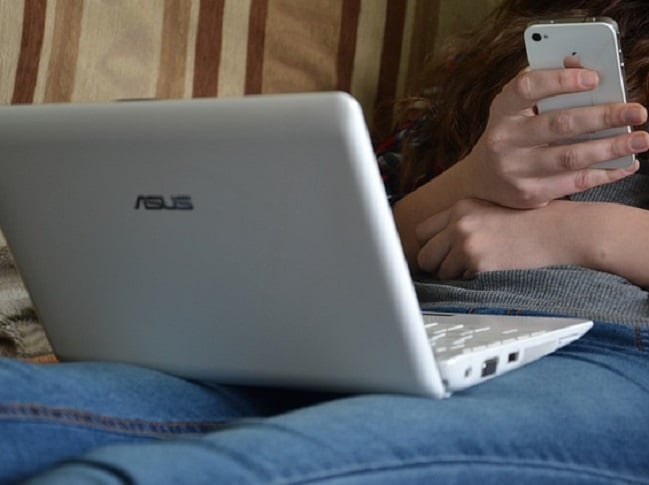As if we didn’t suspect it already, almost a quarter of us admit to using our phones during Zoom and Teams meetings at work.
It’s no surprise, given that more than half of us also confess to taking them with us to the toilet and falling sleep with them.
Of bigger concern may be the fact that, now so many of us are working from home, the pressures we face make us want to sleep during the day to cope with the stress of it all.
The most important Text-related finding in a survey of 1,000 people by the telecommunications provider, TextAnywhere, was the admission that their personal phone does have an impact on their attention span and distracts them from work.
Without being under the watchful eye of colleagues and management, the shift to remote working has allowed employees to adapt their working routine significantly, they say.
James Bosley, Marketing Manager at TextAnywhere, said: “We often talk of people being ‘glued to their phones’, without quite realising the truth behind it. Research by Statista highlights that only 2 per cent of households in the UK do not have a mobile phone, with people often owning more than one mobile phone.
“In an increasingly digital world, mobile phones help to keep us connected both at work and in our personal lives too. Receiving updates via text or scheduling calls with friends and family has been a lifeline for many who have lived alone during the pandemic.”
“Beyond communication, we depend on our smartphones for day-to-day activities like making payments or searching for queries online, and finding locations. For this reason, having a mobile phone to hand has become second nature for many, and it can often feel more unnatural to go a day without one!”
Whilst mobile phones can be seen as a distraction at work for staff who are constantly receiving (and replying to) messages, mobile phone activity and dependency will vary from person to person and so implementing a company-wide ban could create more problems, according to one expert.
Julie Lock, Head of People at Mitrefinch said: “Many employers will panic about the use of mobile phones during working hours and meetings, and the impact this has on productivity. But, if remote working is going to continue beyond Covid-19 then trust must be established by employers, rather than a culture that closely monitors its staff from home.”
“It’s also important to acknowledge how challenging the past 15-18 months have been for everyone, as the boundaries between work and home have been blurred and recent reports are now identifying an ‘overtime epidemic’.
“It could be helpful for management to review their policies at work moving forward and ensure they fit the needs of a changed workforce. If mobile phone activity is not negatively impacting business success, then what is the imposed risk here? Mobile phones are so interconnected in our daily lives, and so setting out a more relaxed approach could offer more benefits to the company as a whole.”
The sleep findings arose from a study commissioned by And So To Bed in which one in 10 admitted that their job and the dread of going to work kept them awake at night. It also revealed that nearly a third of us are taking naps during the day while working from home in order to catch up after a night of poor sleep.
Among the many tips they gave for solving this included one most will probably find hardest when working remotely and alone – stop drinking coffee by 11am
Caffeine – also found in soft drinks and chocolate – has an average half life of 5-7 hours.
For a full look at the TextAnywhere research, see here.
Related
Tired at work – welcome to generation ZZZZZ
Ten top apps for running a business by phone


